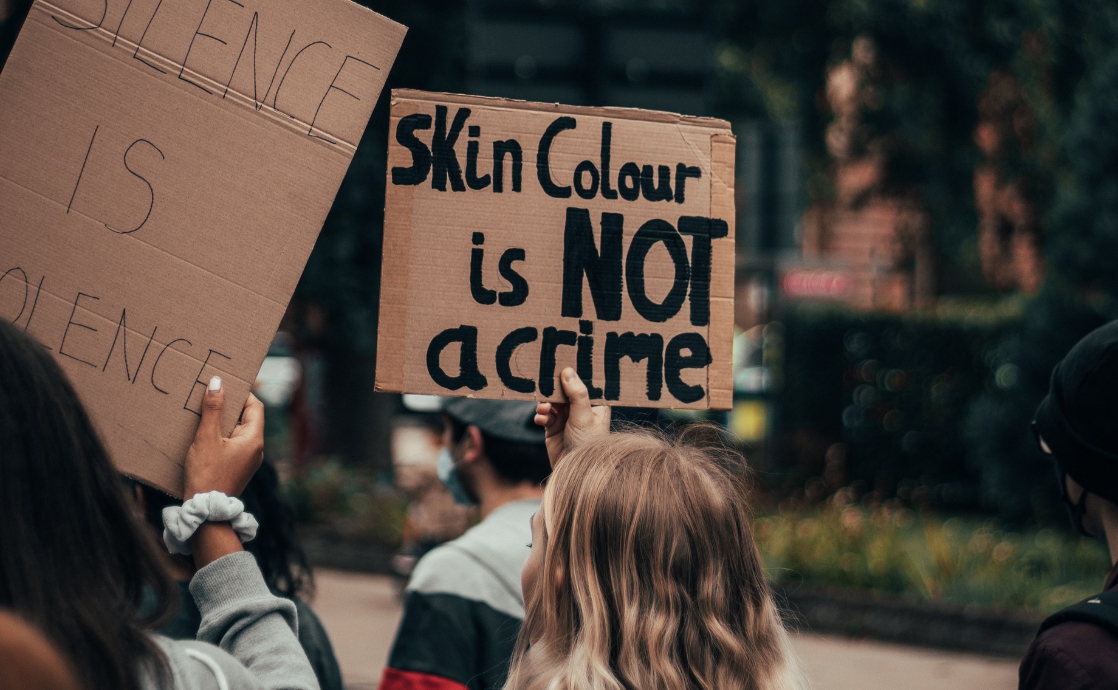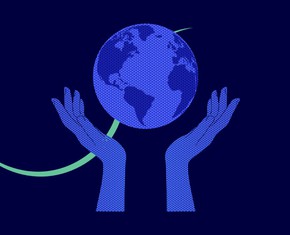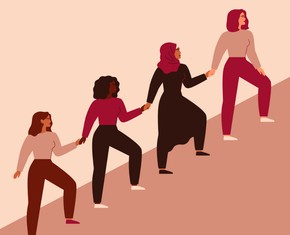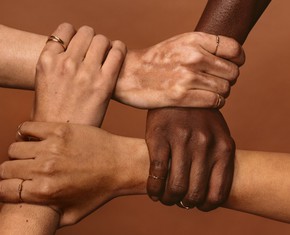The views expressed in our content reflect individual perspectives and do not represent the authoritative views of the Baha'i Faith.
The Baha’i teachings focus on the unity of all humanity, as this quotation from the writings of Abdu’l-Baha explains:
… work on with heart and soul and put forth a mighty effort, until the ramparts of dissension are toppled down and the glories of the oneness of humanity lead all to unity.
We’ve all witnessed those “ramparts of dissension” lately, especially over the concept of Critical Race Theory in American society. Perhaps the most poorly-understood concept that I’ve heard falsely equated with Critical Race Theory (and by extension Marxist propaganda) is systemic racism. What does that term really mean, anyway? How can we come to a clear definition of systemic racism we can all agree on?
RELATED: My Neighborhood Wonders: Why Can’t We Just Teach Goodwill?
One of the most clarifying illustrations of the term came during a CNN interview just after the murder of George Floyd, in which journalist Jake Tapper asked then National Security Advisor Robert O’Brien if he thought systemic racism was a problem in law enforcement.
O’Brien gave an emphatic “no,” and explained at length that it was merely a matter of “a few bad apples.” At the end of his response, O’Brien added a rather impassioned query: “This officer had a history of bad behavior. Where were the local prosecutors and the police commission? Why was he still on the force?”
Ironically, his questions tacitly recognize the prevailing systemic values that tend to tolerate individual bad actors — which, in a nutshell, defines systemic or institutional racism. O’Brien’s questions reveal the reality that racism can operate within a system with or without the active complicity or even awareness of the individuals within it.
This may feel like a hard pill to swallow for people who want very much to believe that, having abolished slavery, codified the 13th and 14th Amendments to the Constitution, gone through the Civil Rights movement, and elected a mixed-race President and Vice-President, we have succeeded as a nation and as a people in fully obliterating racism. Yes, we have made progress during the past century or so – but no, we’re not finished. We still have a long way to go.
One such proponent of the “post-racism” idea is economist and social theorist Thomas Sowell, who is African-American. “Racism is not dead,” he wrote, “but it’s on life support — kept alive by politicians, race hustlers and people who get a sense of superiority by denouncing others as ’racists’.”
In Sowell’s estimation, systemic racism “really has no meaning that can be specified and tested in the way that one tests hypotheses.” He wrote that systemic racism is “one of many words that I don’t think even the people who use it have any clear idea what they’re saying.”
Scientific investigation does not always happen in a controlled environment. Often, we test hypotheses and theories in the real world through observation and logic. When you have a system that, in its normal operation, repeatedly produces racist results that are not necessarily driven by the beliefs held by the people who work within that system or who actively run it, then it’s logical to infer that the prejudicial ideologies are part of the framework in which individual members of the system act. This is the same principle of logic that allows physicists to posit the existence of particles they can’t see, based on the behavior of those they can see.
When Dr. Sowell says that many people don’t have a clue what systemic racism is or why we need to rid ourselves of it, he’s right. But he’s wrong when he says what keeps it alive are “race hustlers” or “bad apples.” What actually keeps systemic racism alive are ideologies that encourage us to simply ignore it because some of us think we can. Those ideologies have had a resurgence in recent years for obvious reasons, and magical thinking will not soften their destructive effects.
Ignorance, in this case, is not bliss.
Do we really believe that we exorcised racism through the Civil Rights Movement? That it ended in 1967 when the Supreme Court, in the Loving v. Virginia case, struck down the last of the anti-miscegenation laws? Does anyone really think that people all over the country miraculously became aware of the oneness of the human race when we elected a bi-racial President?
What magical power could accomplish this? What would cause hundreds of years of prejudice, both personal and institutional, to vanish in the twinkling of an eye? What might erase that prejudice, not just from people’s hearts, but from the institutions and systems that were built when so many of those hearts were infected with this pernicious disease?
One institution exemplary of such systemic infection is the Virginia Military Institute, a college with roots deep in the Confederate cause. The college did not allow students of color to attend until 1968. Fifty-four years later, VMI has finally begun to rid itself of an institutional racism so blatant that it required African-American cadets to participate as soldiers in an historical reenactment of a battle fought to keep their own forebears enslaved.
The democratically-elected global leadership body of the world’s Baha’is, the Universal House of Justice, in its 1985 message The Promise of World Peace, laid out in the strongest terms what racism is costing humanity. They wrote:
Racism, one of the most baneful and persistent evils, is a major barrier to peace. Its practice perpetrates too outrageous a violation of the dignity of human beings to be countenanced under any pretext. Racism retards the unfoldment of the boundless potentialities of its victims, corrupts its perpetrators, and blights human progress. Recognition of the oneness of mankind, implemented by appropriate legal measures, must be universally upheld if this problem is to be overcome.
Racism, simply put, harms both its victims and its perpetrators. It stunts individual growth and collective progress. Ultimately it corrupts us, causing us to ignore or even deny what the faiths we profess to hold in our hearts have taught for millennia in favor of what is expedient or materially beneficial to whatever group is in power.
RELATED: What Is Intercultural Empathy, and Why Is It Important?
Prejudice still exists, and the institutions of power still have assumptions about race embedded in their foundational frameworks. We do not bear responsibility for the mistakes made by our forefathers, but we must bear responsibility for what we do now and in the future. Racism will not die until we kill it by denying it the oxygen it needs to exist. This requires universal recognition and promotion of the oneness of the human race.
The stakes are extraordinarily high.
Baha’u’llah, the prophet and founder of the Baha’i Faith, wrote: “The well-being of mankind, its peace and security, are unattainable unless and until its unity is firmly established.”
















Comments
Sign in or create an account
Continue with Googleor